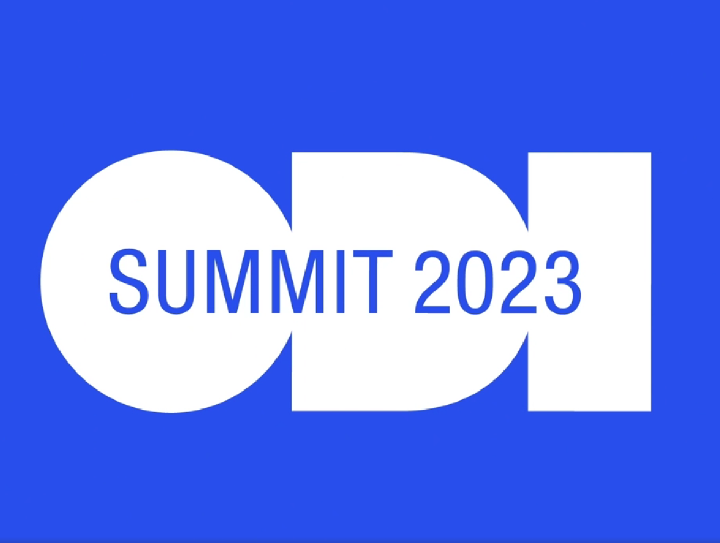591 rezultāti atrasti
Skip results of view Ziņas

The Data Spaces Blueprint , unveiled recently, marks a significant moment in the European Union's expansive data strategy. It is a crucial support system for the development of data spaces within the Single European Market, emphasising secure and trustworthy data transactions, and underlining the importance of data sovereignty and trust. This framework lays the foundation for diverse data ecosystems, ensuring their robustness. As part of this strategic initiative, the Data Spaces Blueprint recognises the vital role of open data principles in the broader landscape of data space evolution

On November 30th and December 1st, the European Day of Persons with Disabilities (EDPD) unfolded in Brussels, marking a significant annual event. This two-day conference, a collaborative effort between the European Commission and the European Disability Forum, brought together over 400 policymakers, high-level experts, and disability advocates. The conference served as a crucial platform to address vital themes, including the right to vote and stand for elections, the European Year of Skills 2023, and the Strategy for the Rights of Persons with Disabilities 2021–2030. This yearly gathering

In a comprehensive legal report commissioned by the data.europa.eu initiative, we delve into the complex field of licence compatibility challenges, shedding light on practical implications and unveiling strategies to propel open data collaboration across Europe. The report serves as a crucial resource, offering valuable insights into the nuances of varied licensing approaches and emphasising the need for cohesive strategies to ensure seamless integration for data re-users. Amidst the challenges outlined, a significant trend emerges as we observe a substantial shift towards widely recognised

On 18-19 November 2023, the Council of Europe held an international hackathon in Paris, France. The event revolved around the topics of digital transformation, human rights, and easier use of case law databases. Titled ‘ Digital Future of Justice’, the hackathon focused in particular on developing tools for automated indexing of judicial decisions with human rights categories. The event brought together 29 participants, students and researchers from Cyprus, Greece, Lithuania, Norway, Poland and Romania, who formed six national teams. They were supported by experts in technology and law

On November 7th, the Open Data Institute (ODI) Summit 2023 convened with a resounding theme: 'Without data, there is no AI.' A virtual gathering of global minds, the summit underscored the crucial link between open data and the trajectory of artificial intelligence (AI). The day-long summit navigated diverse facets of the data-AI landscape. Topics ranged from the collaboration between big tech and the global community to the intersection of creativity and AI, emphasising the pivotal role of open data in technological advancements. The summit's culmination involved a dialogue between Sir Nigel

To strengthen local and regional authorities with advanced digital capabilities, the Local and Regional Digital Indicators framework (LORDI) introduces LORDIMAS. This transformative digital maturity assessment tool, a product of collaboration with Living-in.EU , was officially unveiled with comprehensive demos during online events in October and the Smart City Expo in Barcelona from November 7-9 . LORDIMAS empowers local and regional governments across Europe to assess their digital progress, foster open data sharing and promot e more efficient governance. LORDIMAS , a free and interactive

As winter has already arrived and the holiday season is a pproaching , cosy up with a good read and embark on a literary journey from the comfort of your home. If you are seeking some data-driven reads, check-out the winter reading list curated by data.europa.eu . This list features six engaging reads ranging from articles to books, unveiling intriguing insights about open data, AI, data ethics, and more . High-value datasets , building data in EU Member States Discover the diverse and impactful high-value datasets shaping the EU's digital future in this comprehensive data.europa.eu data story

Today is World Children's Day . This event , celebrated every year on November 20, marks the anniversary of the Convention on the Rights of the Child . This global observance not only highlights children's rights but also serves as a reminder of the pivotal role open data plays in shaping a better future for the leaders of tomorrow. Children and young people today are increasingly vocal about issues critical to their generation, such as climate change, education, mental health, and combating discrimination , actively participating in shaping their future. World Children's Day gives them the

On Friday 8 December from 10.00 to 11.30 CET, the data.europa academy will host a webinar focusing on the subject of data ownership. During this webinar , you will gain a deeper understanding of how the latest data landscape regulations can affect you. This webinar is the first webinar on the topic of data ownership. Through the webinars and reading materials, participants can gain a deeper understanding of the latest legal challenges related to the use and distribution of open data through existing and upcoming legislation, on topics such as intellectual property and data protection

Have you ever thought how important open data is in today's world? Are you curious about its practical applications and the challenges around it? Would you like to know what's coming next in the world of open data? Well, you are in for a treat with our six-episode podcast series on data.europa.eu! Grab your cup of coffee, or tea, and join our ‘Open Data Cafe’ podcast, designed to take you on a journey to discover open data. The series aims to help you grasp the importance of open data in today's ever-changing landscape. In each episode, an expert in the field of open data is invited to have an
